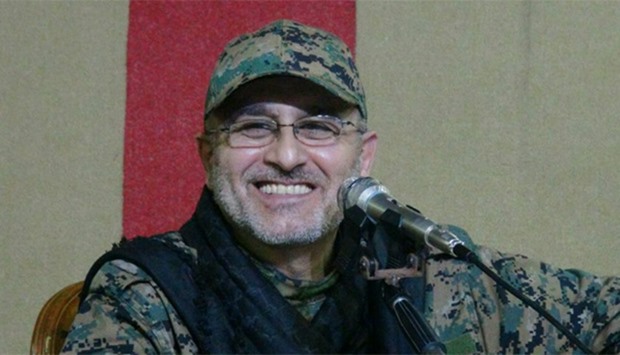The group said it was still investigating the cause of the blast near Damascus airport but it did not immediately point the finger at Israel as it did when the commander's predecessor was assassinated in the Syrian capital in 2008.
The death of Mustafa Badreddine, who had led Hezbollah's massive intervention in Syria in support of President Bashar al-Assad's regime, came as a fragile truce in the country's five-year conflict teetered on the brink of collapse.
A six-day-old ceasefire in battleground second city Aleppo expired early Thursday without renewal and rebel sniper fire on the government-held sector of the city killed two civilians, one of them a woman, a monitoring group said.
Heavy air strikes pounded Al-Qaeda's Syrian affiliate Al-Nusra Front in its Idlib province stronghold in the northwest, killing 16 of its fighters, including a senior commander.
Badreddine had been a key player in Hezbollah's military wing virtually since its inception.
He was on a US terror sanctions blacklist, was a key suspect in the 2005 assassination in Beirut of former Lebanese prime minister Rafiq Hariri, and was one of Israel's most wanted men.
The Shia militant group, which now dominates Lebanon's government, did not specify which of Badreddine's many enemies it held responsible for his death.
‘According to preliminary reports, a large explosion targeted one of our positions near Damascus international airport killing brother commander Mustafa Badreddine and wounding other people,’ it said in a statement.
‘We are going to pursue an inquiry to determine the nature and causes of the explosion and ascertain whether it was the result of an air strike, a missile or artillery fire.’
Damascus airport lies to the east of the capital where various rebel groups have a strong presence in the countryside, although pro-government forces have secured the highway to it for the past two years or more.
Badreddine's predecessor, Imad Mughniyeh, his cousin and brother-in-law, was killed in Damascus in 2008 in an attack that drew immediate threats by Hezbollah of heavy retaliation against Israel.
It made no such threats after Badreddine's death.
Israel made no comment, as it did in 2008 too, but Israeli media underlined Hezbollah's failure to point the finger.
In its 2012 terror blacklisting of Badreddine, Washington charged that he was the key pointman for Hezbollah's operations in Syria alongside its key foreign backer Iran in support of Assad's regime.
‘Badreddine is assessed to be responsible for Hezbollah's military operations in Syria since 2011, including the movement of Hezbollah fighters from Lebanon to Syria, in support of the Syrian regime,’ the US Treasury Department said.
‘Since 2012, Badreddine coordinated Hezbollah military activities in Syria,’ it said.
- Key prop for Assad -
Hezbollah's intervention was vital in shoring up Assad's regime at its lowest point in the war against rebels backed by Gulf Arab and Western countries.
Its fighters secured most of the Lebanese border region, cutting vital rebel supply lines, and reasserted government control in most of the southern suburbs of Damascus, including the Sayyida Zeinab Shia shrine district, revered by Hezbollah's followers and by its Iranian backers.
The intervention of Russia in September last year in support of its Damascus ally has sharply expanded the military coalition backing it.
Russian officials have vowed to work closely with their US counterparts to salvage a February ceasefire between pro-government forces and non-jihadist rebels but it was teetering on the brink on Friday after the collapse of the Aleppo truce.
That deal had sharply reduced a surge in the fighting in Syria's pre-war commercial capital that had killed more than 300 civilians.
Al-Qaeda, like the Islamic State group which controls much of eastern Syria, was never party to the truce and more than 60 air strikes on Thursday targeted the Abu Duhur airbase in an area of Idlib province it controls, the Britain-based Syrian Observatory for Human Rights monitoring group said.
It was unclear whether those strikes were carried out by the Syrian air force, Russian warplanes or aircraft of the US-led coalition, all of which have struck Al-Qaeda in Syria in the past.
As violence flared, efforts by the United Nations and the Red Cross to step up aid deliveries to the hundreds of thousands of desperate civilians trapped in besieged areas ran into trouble.
The United Nations on Thursday abandoned an attempt to make the first significant aid delivery in four years to the besieged rebel enclave of Daraya outside Damascus after a consignment of baby milk was blocked by pro-government forces.
‘We urge the responsible authorities to grant us access to Daraya, so we can return with desperately-needed food & medicines,’ the International Committee of the Red Cross said.

